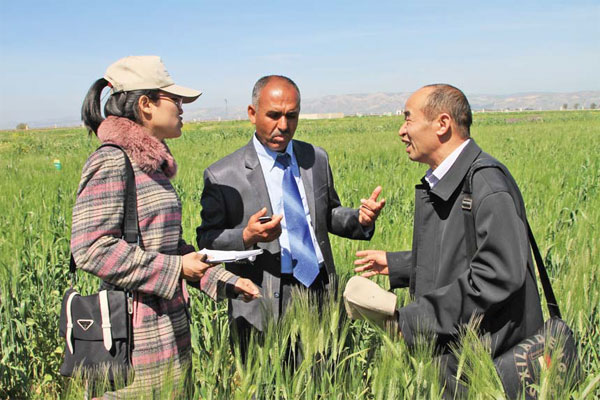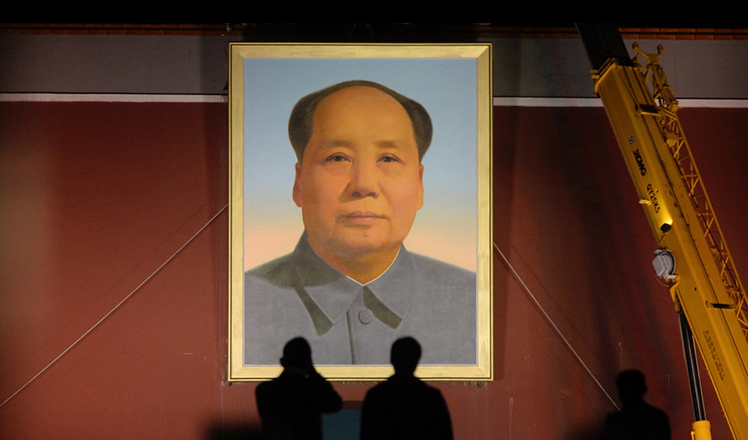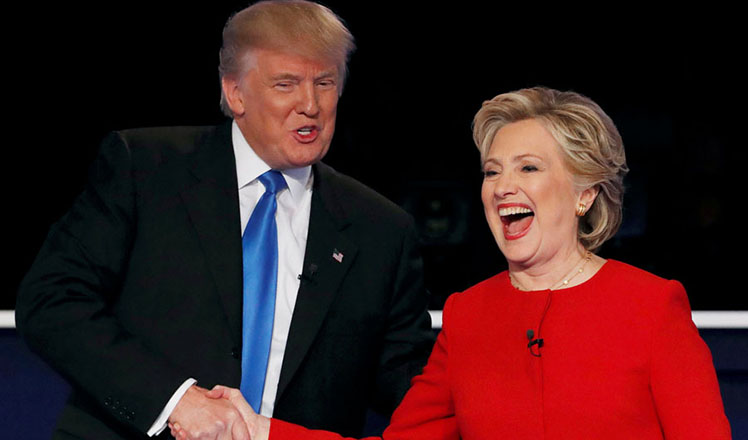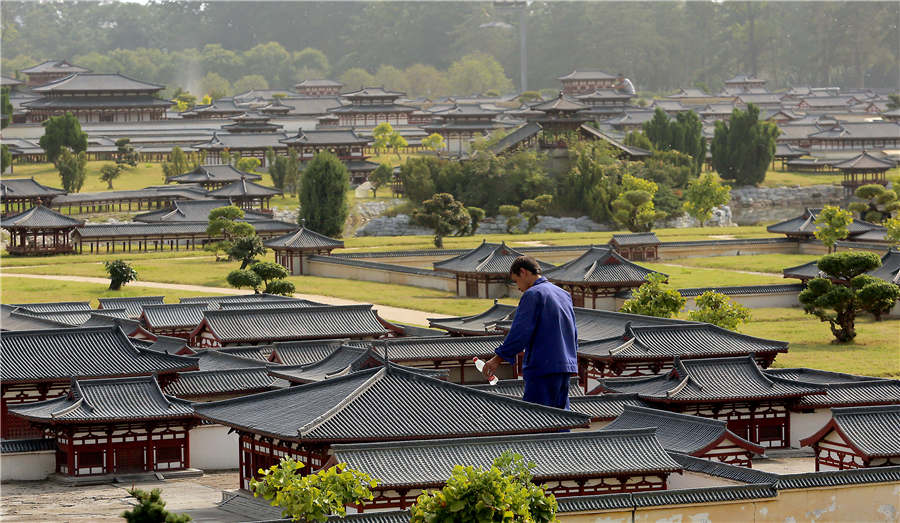US claim on farm goods morally untenable
Updated: 2016-09-29 07:45
By Tang Zhong(China Daily)
|
||||||||
 |
|
Agricultural experts discuss the management of saline-alkali soils in Relizane province of Algeria. [Photo/ Xinhua] |
On Sept 13, the United States initiated WTO dispute proceedings against China, claiming that Beijing had provided support for farmers in excess of its commitment to the World Trade Organization. Among the crops in contention are wheat, Indica rice, Japonica rice, and corn.
The US is the largest exporter of agricultural products and grows many of these mainly for exports. In contrast, China is the largest importer of farm products, with its agriculture characterized by small-scale production and subsistence farming. In other words, the conflict is between the US' large commercial farmers and China's smallholding farmers.
After China opened up its agricultural market following its entry into the WTO, the US flooded it with its exports, harming small farmers. The increase in the exports of US farm products to China-from less than $2.8 billion to $28.8 billion at its peak-gives an idea of the harm caused. China's average trade deficit in relation to US farm products is $20 billion a year, and it is the largest export market for US farm products.
Moreover, China's average production scale is 0.66 hectare per household, 1/400 of the US'. Even Heilongjiang province, with the richest land resource in China, has an average production scale of only 3.04 hectares per household.
The most important task of China's farm sector is to ensure food security and secure the livelihoods of millions of small farmers. So given the devastating impact of excessive imports, the government had to offer support to the agriculture sector, especially because its tariff plays little role in protecting domestic production. The US government claims China's support to its farm sector was about $100 billion. Even if we accept the figure, on average a Chinese farmer received only $161 in government support, nowhere near the support given by the US government to its farmers.
The measures taken by the Chinese government are necessary for ensuring the country's food security and protecting the livelihoods of farmers, as well as a prerequisite for honoring its commitments to the UN Millennium Development Goals. Without such measures, China could not have lifted 600 million people, or 90 percent of the world's total, out of poverty. The World Bank has spoken highly of China's achievement, calling it "the fastest large-scale poverty alleviation in human history". But China still has 70 million impoverished people according to its own standard and 200 million according to the World Bank standard, and they cannot be lifted out of poverty without government support.
China's grain production has increased in recent years. But judging by its real market share, China's self-sufficiency level in farm products fell to below 87 percent. This shows China has not overly stimulated grain production and its support to agriculture poses no threat to normal international trade or US farm exports to China.
The US claims China's support to agriculture exceeded WTO accession commitments in 2012-15. But it was during that period that the exports of US farm products to China reached a record high of $108.97 billion, up 55 percent from $70.44 billion in 2008-11. Despite slight fluctuations in 2015, imports from the US accounted for 21 percent of China's total.
The US' claim is a reflection of the conflict between trade liberalization and the real need of developing countries to ensure food security. Global cereal trade accounts for less than 15 percent of the world's total output, so countries have to meet more than 85 percent of their demand through domestic supply. And the only way they can do that is to increase their spending on agriculture and support small farmers. That's why developing countries reiterated at the Doha Development Round that food security is not negotiable.
The WTO, too, says food security must be fully taken into account during the process of trade liberalization, commercial gains cannot be made at the cost of small farmers' livelihoods and rural development needs.
Eliminating poverty, and ensuring food security and small farmers' livelihoods are the common goals of all nations, but they are particularly important for China, a developing country with a huge population. So any trade liberalization that ignores China's development needs is morally untenable. And any trade growth that ignores the food security of 1.3 billion people and livelihoods of 620 million farmers is neither healthy nor sustainable.
The author is dean of the School of Agricultural Economics and Rural Development, Renmin University of China.
- Boy with leukemia overcomes lonely hospital trips, keeps studying
- Foreign eyes offer new view of the Long March
- Visitors return to old nuclear facility in Chongqing
- Great Wall's image hurt by repair work, officials say
- Students 'die' to get closer to each other in Hangzhou
- Russian ice creams hot in China

 Real life 'Transformer' car turns into robot
Real life 'Transformer' car turns into robot
 Israel's ex-president Peres dies at 93
Israel's ex-president Peres dies at 93
 New Mao Zedong's portrait graces Tian'anmen
New Mao Zedong's portrait graces Tian'anmen
 Clinton, Trump go head to head in high stakes presidential debate
Clinton, Trump go head to head in high stakes presidential debate
 Miniature replica of Daming Palace shows craftsmanship
Miniature replica of Daming Palace shows craftsmanship
 Elderly man creates map of China with colorful rice
Elderly man creates map of China with colorful rice
 Students 'die' to get closer to each other in Hangzhou
Students 'die' to get closer to each other in Hangzhou
 Classic autos debut at Beijing Design Week
Classic autos debut at Beijing Design Week
Most Viewed
Editor's Picks

|

|

|

|

|

|
Today's Top News
Trump outlines anti-terror plan, proposing extreme vetting for immigrants
Phelps puts spotlight on cupping
US launches airstrikes against IS targets in Libya's Sirte
Ministry slams US-Korean THAAD deployment
Two police officers shot at protest in Dallas
Abe's blame game reveals his policies failing to get results
Ending wildlife trafficking must be policy priority in Asia
Effects of supply-side reform take time to be seen
US Weekly

|

|







